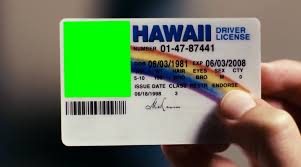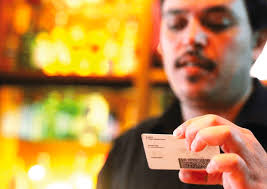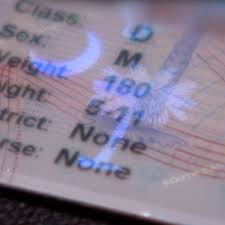Fake ID online
Introduction
Fake IDs have long been associated with underage drinking or bypassing age restrictions on certain services. However, in today’s increasingly digital landscape, the use of fake IDs has grown far beyond these narrow applications. People now purchase fake IDs online for reasons that range from convenience and privacy protection to bypassing overly stringent identification procedures. This article delves into the world of fake ID online markets, offering a comprehensive look at the features of these products, the current state of the market, and a detailed analysis of the legal risks involved.
We’ll explore the key factors that influence consumer decisions when buying fake IDs, review the most reputable sources for purchasing them, and provide tips on how to safely navigate the complexities of this often-controversial topic.
1. Product Overview: What Is a Fake ID?
Definition and Types of Fake IDs
A fake ID is typically a counterfeit identification card created to replicate an official government-issued ID, such as a driver’s license, passport, or student ID card. These IDs are designed to mimic legitimate forms of identification closely, often down to the smallest details like holograms, barcodes, and micro-printing.
There are two primary types of fake IDs:
Full Fake IDs: These are completely fabricated identification documents that bear no relation to a real person’s identity. These IDs often include fabricated names, addresses, and even photos.
Novelty IDs: These can be considered less “fake” and more as documents created for fun or as collector’s items. However, they can still be used in some cases to bypass age restrictions if they closely resemble an official document.
Features of a Fake ID
When purchasing a fake ID online, several critical features are evaluated to determine quality:
Holograms and Watermarks: These security features are designed to replicate the unique symbols on real IDs. A high-quality fake ID will have precise holograms that can pass visual inspection under certain lights.
Scannability: Most modern IDs have barcodes or magnetic strips that can be scanned to verify authenticity. Reputable fake ID makers ensure that the barcodes on their products can pass scanner tests at clubs, bars, or security checkpoints.
Raised Text and Tactile Features: The texture of the ID matters. A good fake will replicate the embossed or raised text often found on real documents.
UV Ink: Many IDs feature ultraviolet (UV) ink that becomes visible only under blacklight. A high-quality fake ID will accurately replicate this feature.
2. The Market: Understanding the Online Fake ID Economy
Market Evolution
The market for fake IDs has evolved significantly over the past two decades, especially with the rise of e-commerce and digital communication. In the past, acquiring a fake ID might have involved sketchy in-person meetings or clandestine referrals, but today, entire websites and online forums are dedicated to selling counterfeit IDs.
The online fake ID market primarily operates in the following ways:
Dedicated Websites: These platforms specialize in producing and selling fake IDs and have gained a reputation in the underground internet economy. Some of these sites offer various options for customization and even claim a guarantee of delivery.
Dark Web Services: A portion of the market exists on the Dark Web, where individuals can purchase IDs using cryptocurrencies like Bitcoin to maintain anonymity.
Social Media and Forums: Online communities, often on Reddit or niche forums, serve as hubs where users can exchange reviews and experiences about fake ID vendors, creating a peer-reviewed marketplace of sorts.
Key Players in the Market
There are several well-known fake ID websites that have established themselves over the years. While mentioning specific site names can be controversial, what matters is the differentiation between reputable sellers and potential scammers. These sellers tend to boast:
- Positive online reviews
- Responsive customer service
- Reliable shipping
- Quality products that meet customer expectations
3. Target Audience: Who Buys Fake IDs Online?
Primary Users
The target audience for fake ID services has expanded over time. While the typical user has often been underage individuals looking to enter clubs or purchase alcohol, the scope has broadened to include:
Underage Drinkers: This remains one of the biggest demographics for fake ID purchases. These buyers are typically college students or young adults under 21 years old.
International Travelers: Some people order fake IDs to travel under an alias, though this is far riskier and illegal in most jurisdictions.
Privacy Conscious Individuals: With increasing surveillance and ID requirements in daily life, some people use fake IDs as a form of identity protection when signing up for online services or entering facilities that require personal identification.
Expats or Temporary Residents: Some individuals living abroad use fake IDs to navigate local laws, often for minor purposes like avoiding bureaucracy or expediting processes that require local identification.
Regional Variations
Different regions have varying levels of demand for fake IDs. In countries with strict alcohol and age-related laws, such as the United States or Canada, the demand tends to be high. On the other hand, countries with more lenient age restrictions may see less interest in these products.
4. Features of a Reliable Fake ID Service
Website Security and Privacy
When purchasing a fake ID online, one of the most critical aspects is the security of the website itself. Reputable sites will feature several layers of encryption and privacy measures:
SSL Encryption: Secure websites protect transactions and personal data by encrypting all communications between the user and the site.
Payment Methods: The most reputable vendors usually offer a variety of payment options, including cryptocurrency (such as Bitcoin) for added anonymity. Credit card payments are generally avoided as they can be tracked more easily.
Customer Reviews: Reviews and customer feedback provide transparency about the quality of the service. While it's essential to approach these with caution, a well-reviewed site is more likely to offer a legitimate product.
Shipping and Delivery
The logistics of delivering a fake ID are fraught with potential risks, including seizure by customs and the potential for legal trouble. Reliable vendors will:
- Use discreet packaging that avoids drawing attention.
- Offer tracking services so that buyers can follow the delivery process.
- Provide replacements in case the ID is confiscated during shipment.
5. Legal Implications: The Risks of Buying a Fake ID
Is It Illegal?
Yes, purchasing or using a fake ID is illegal in most countries. The specific laws vary depending on the jurisdiction, but in general, owning or attempting to use a counterfeit ID to misrepresent your identity is a criminal offense. This can range from fines to more severe punishments, including imprisonment, depending on how the ID is used.
Consequences of Using a Fake ID
Criminal Charges: The most immediate risk is criminal charges. These can include fraud, identity theft, and forgery. In some cases, the mere possession of a fake ID is enough to warrant a misdemeanor or felony charge.
Fines and Penalties: Depending on where you are, fines can range from hundreds to thousands of dollars. For students, this can also mean suspension or expulsion from school if caught.
Permanent Records: Convictions for using a fake ID can leave a lasting mark on your criminal record, which may affect future job prospects, college admissions, and other aspects of life.
Deportation or Visa Revocation: For international buyers using fake IDs while residing in another country, there is a serious risk of deportation or the revocation of their visa.
6. Ethical Considerations: Should You Buy a Fake ID?
The Moral Dilemma
There’s an ethical dimension to buying a fake ID that goes beyond the legal implications. While some buyers view it as a harmless act that allows them to gain access to restricted venues or products, others see it as part of a broader issue of deception and unlawful behavior.
Youth and Responsibility: For younger individuals, purchasing a fake ID often represents a form of rebellion or a rite of passage. However, it also raises questions about the societal pressures that lead underage individuals to break the law in the first place.
Exploitation of Loopholes: Many people who buy fake IDs are exploiting loopholes in systems that they feel are overly restrictive or unfair, such as overly harsh identification requirements in certain jurisdictions.
7. How to Choose the Best Fake ID Provider
Research and Reviews
Before purchasing a fake ID, it’s essential to conduct thorough research. Look for vendors with a long-standing reputation for producing high-quality products and offering reliable customer service. Pay attention to:
Online Forums: Communities of fake ID buyers often congregate in forums, where they share reviews and discuss their experiences. These can be valuable resources when researching potential vendors.
Social Media: Some providers promote their services through social media, where users can engage directly and ask questions before making a purchase.
Sample Galleries
Most reputable fake ID sellers will feature sample galleries on their website, showing images of the IDs they produce. These galleries allow prospective buyers to see the quality of the product before committing to a purchase.
8. Tips for Using a Fake ID Safely
What to Do and What to Avoid
If you’re determined to use a fake ID, here are some tips to help you avoid getting caught:
Confidence is Key: One of the biggest giveaways when using a fake ID is nervousness. If you appear anxious, security personnel are more likely to scrutinize your ID.
Know the Details: Make sure you memorize the information on the ID and practice answering questions about it. If asked for your birth date, address, or ID number, hesitation can raise suspicion.
Use Sparingly: The more you use your fake ID, the higher the chances of getting caught. Limit your use to reduce the risk.
Avoid Obvious Locations: Using a fake ID in places that are known for strict enforcement of identification, such as government buildings or airports, is a bad idea.
Conclusion
Purchasing and using a fake ID online is a controversial topic that spans issues of legality, convenience, and morality. While many people find it a necessary tool for bypassing age restrictions or protecting their privacy, others view it as an illegal and risky behavior that can have serious consequences. Understanding the features of a fake ID, how the market operates, and the legal risks involved can help potential buyers make informed decisions.
Whether you're considering buying a fake ID for the first time or you're simply curious about the market, this guide provides a detailed overview of what to expect. While we cannot endorse the use of fake IDs, this article sheds light on the complexities involved in this underground economy, ensuring that readers are better informed about the risks and realities of the online fake ID world.
 Target Audience
Target Audience
 photo ID software
photo ID software
 Texas Fake ID Benefits
Texas Fake ID Benefits
 Fake Georgia ID
Fake Georgia ID
 Student ID Card
Student ID Card
 Authentic-looking ID
Authentic-looking ID
 High-Quality Fake ID
High-Quality Fake ID
 digital fake ID
digital fake ID
